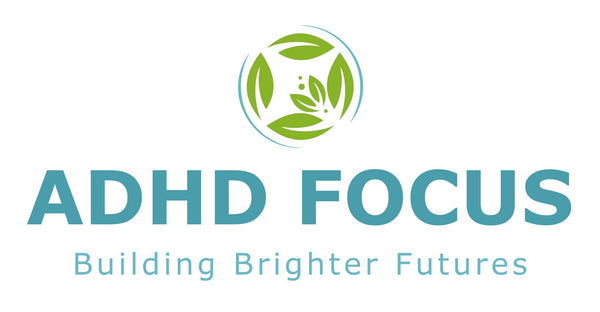
ADHD and Diet: Does diet really make a difference to ADHD symptoms?
Share
As parents, we'd do anything to help our children thrive. If your child has been diagnosed with ADHD, or you suspect they might have it, you've likely explored various treatment options. One area that's gaining increasing attention, and for good reason, is the connection between ADHD and diet. You might be asking yourself, "Can what my child eats really make a difference?" The answer, in many cases, is a resounding yes.
We understand the challenges of managing ADHD. It can impact everything from concentration and focus to behavior and emotional regulation. While medication can be helpful for some, many parents are also seeking natural and complementary approaches, and diet is a powerful tool in that toolkit.
The Science Behind the Diet-ADHD Connection
While the exact causes of ADHD are still being researched, we know that brain function and development play a significant role. And what fuels the brain? Nutrition. Think of it this way: just like a high-performance car needs the right kind of fuel, a child's brain needs the right nutrients to function optimally.
Emerging research suggests that certain dietary factors can influence ADHD symptoms. These include:
- Processed Foods and Additives: These often contain artificial colours, flavours, and preservatives that some studies link to hyperactivity and inattention. These additives can overwhelm a child's system, exacerbating ADHD symptoms.
- Sugar: High sugar intake can lead to rapid spikes and crashes in blood sugar, affecting energy levels, mood, and concentration. Think of the "sugar rush" followed by a slump – this can be particularly disruptive for children with ADHD!
- Food Sensitivities: Some children with ADHD may have undiagnosed food sensitivities or intolerances. Common culprits include gluten, dairy, and soy. Identifying and eliminating these trigger foods can significantly improve behavior and focus.
- Nutrient Deficiencies: Certain nutrients are essential for brain health and development. Deficiencies in omega-3 fatty acids, iron, zinc, and magnesium, for example, have been linked to ADHD symptoms.
Practical Dietary Recommendations for ADHD
Making dietary changes can feel overwhelming, but it doesn't have to be. Here are some practical tips to get you started:
- Focus on Whole Foods: Prioritize fruits, vegetables, lean proteins, and whole grains. These provide essential nutrients without the harmful additives.
- Limit Processed Foods: Read labels carefully and avoid foods high in sugar, artificial colors, flavors, and preservatives.
- Reduce Sugar Intake: Swap sugary drinks for water, and limit treats. Opt for natural sweeteners like fruit in moderation.
- Identify Food Sensitivities: Consider an elimination diet or work with a healthcare professional to identify any food sensitivities your child may have.
- Boost Omega-3s: These healthy fats are crucial for brain function. Include oily fish (salmon, tuna), flaxseeds, and chia seeds in your child's diet. Consider a high-quality omega-3 supplement if needed.
- Ensure Adequate Iron, Zinc, and Magnesium: These minerals play vital roles in brain health. Include iron-rich foods like red meat and leafy greens, zinc-rich foods like nuts and seeds, and magnesium-rich foods like spinach and avocados in your child's diet.
Some Easy and Healthy Recipe Ideas
- Breakfast: Oatmeal with berries and nuts, scrambled eggs with vegetables.
- Lunch: Chicken and avocado sandwich on whole-wheat bread, salad with grilled chicken.
- Dinner: Baked salmon with roasted vegetables, lentil soup.
- Snacks: Fruits, vegetables sticks with hummus, trail mix (nuts, seeds, dried fruit).
Working with a Healthcare Professional
It's always best to consult with a healthcare professional or registered dietitian before making significant dietary changes, especially if your1 child is on medication. They can help you develop a personalized plan that meets your child's specific needs.
The Takeaway
While diet isn't a "cure" for ADHD, it can play a significant role in managing symptoms and supporting overall well-being. By making informed food choices, you can empower your child to thrive and reach their full potential. Remember, small changes can make a big difference!
